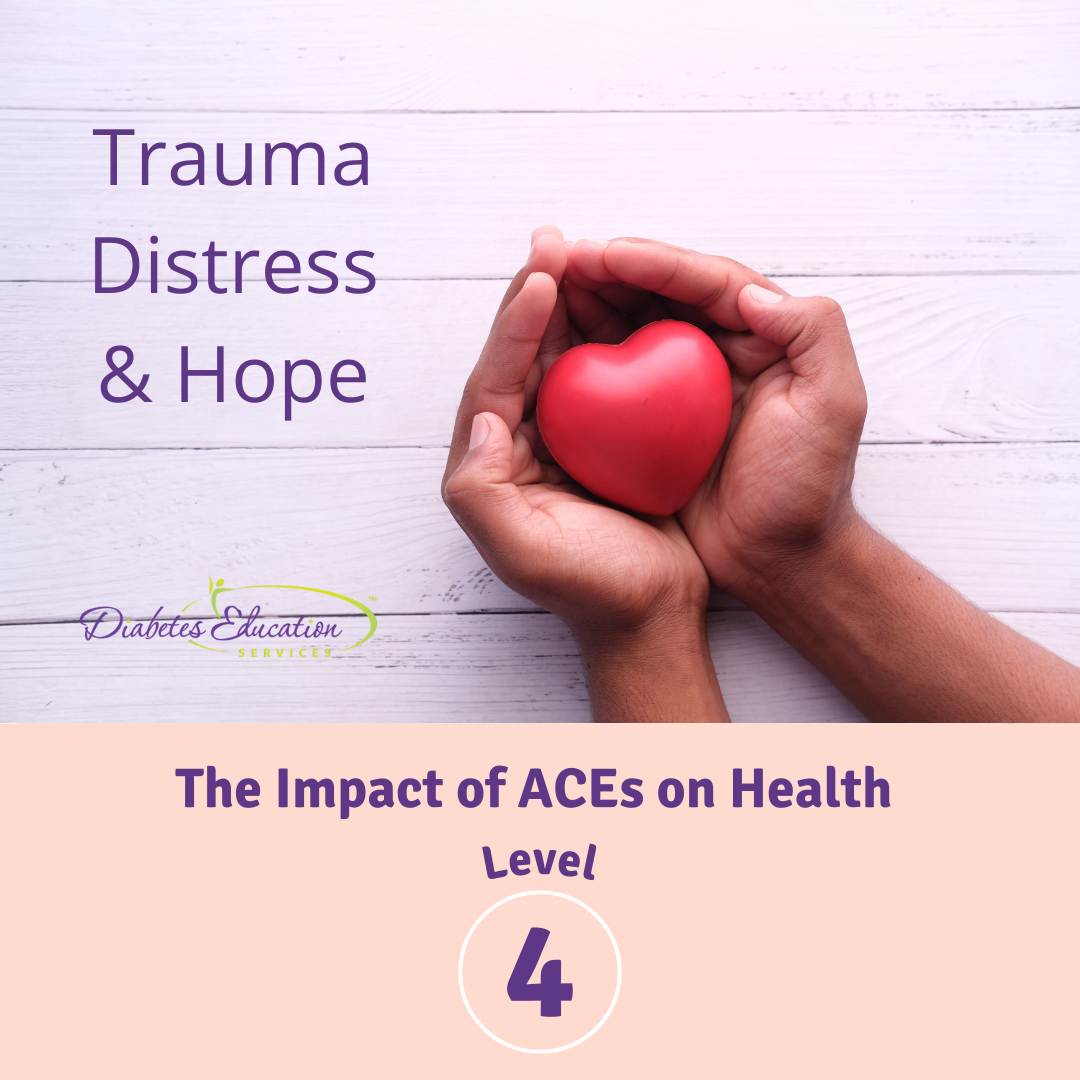For last week’s practice question, we quizzed participants on helping someone flustered and late to an appointment. 73% of respondents chose the best answer. We want to clarify and share this important information, so you can pass it on to people living with diabetes and your colleagues, plus prepare for exam success!
Before we start though, if you don’t want any spoilers and haven’t tried the question yet, you can answer it below: Answer Question

Question: JR is a 22-year-old living with type 1 diabetes who arrives late for their appointment and seems out of sorts. When looking at the ambulatory glucose profile, you notice that time in range is less than 40% and coefficient of variation is also over 40%. You remember from a previous visit that JR had experienced almost half a dozen adverse childhood experiences and had elevated diabetes distress.
Based on this information, what is the next best step?
Answer Choices:
- Use the empowerment approach to help JR take charge of their life.
- Request that JR is referred to a mental health specialist.
- Utilize motivational interviewing techniques to help JR through this rough spot.
- Create a judgement free zone and explore with JR how they are feeling.

Getting to the Best Answer
Answer 1 is incorrect. 4.31% chose this answer. “Use the empowerment approach to help JR take charge of their life.” Even though the empowerment approach can be used as a tool to help people take a more active role in their self-care, given JR’s level of distress, this would not be the best approach. We will need to first assess the situation and discuss next steps as part of collaborative care.
Answer 2 is incorrect. 9.66% of you chose this answer. “Request that JR is referred to a mental health specialist.” Even though JR is clearly struggling with diabetes distress and being “out of sorts’, this does not automatically mean he needs to be referred to a mental health specialist. We will need to first assess the situation and discuss next steps as part of collaborative care.
Answer 3 is incorrect. About 13.10% of respondents chose this. “Utilize motivational interviewing techniques to help JR through this rough spot.” Even though motivational interviewing can be used as a tool to help people take a more active role in their self-care, given JR’s level of distress, this would not be the best approach. We will need to first assess the situation and discuss next steps as part of collaborative care.
Finally, Answer 4 is correct. 72.93% chose this answer. “Create a judgement free zone and explore with JR how they are feeling.” YES, GREAT JOB. We need to provide a safe environment for JR to have the freedom to share what is happening in their life and support them in taking action to decrease their distress.
We hope you appreciate this week’s rationale! Thank you so much for taking the time to answer our Question of the Week and participate in this fun learning activity!
Want to learn more about this question?
Join us live on October 29, 2024 for our
The Impact of Adverse Childhood Experiences on Health
Level 4 | Advanced & Specialty Topic Courses

Adverse childhood experiences (ACE) are associated with an increased risk of diabetes, heart disease, cancer & a variety of other health consequences for adults. This session reviews how diabetes care & education specialists can provide screening, assessment, & trauma-informed care to individuals who experienced ACEs & are living with toxic stress. We will explore strategies to address ACES & improve outcomes for individuals & communities. Throughout, we will focus on supporting self-care with a focus on recognizing & promoting resilience.
Objectives:
- Discuss the benefits of assessing Adverse Childhood Experiences (ACE) in individuals with diabetes.
- State the relationship between ACE Scores & the risk of future health complications.
- Describe a person-centered approach to fostering resilience & self-care for individuals with toxic stress.
- Identify two strategies to provide trauma-informed care in your work setting.
Learning Outcome:
Participants will identify how trauma can impact diabetes and self-management along with strategies to support hope when working with people with diabetes.
Target Audience:
This course is a knowledge-based activity designed for individuals or groups of diabetes professionals, including RNs, RDs/RDNs, Pharmacists, Nurse Practitioners, Clinical Nurse Specialists, Physician Assistants, and other healthcare providers interested in staying up to date on current practices of care for people with prediabetes, diabetes, and other related conditions. The practice areas for RDs/RDNs for CDR reporting are healthcare, preventative care, wellness, and, lifestyle along with, education and research.
CDR Performance Indicators:
- 9.2.1
- 9.2.3
- 9.4.3
Instructor: Beverly Thomassian RN, MPH, CDCES, has been Board Certified in Advanced Diabetes Management for over 15 years. She is an Associate Clinical Professor at UCSF, a working educator, and a nationally recognized diabetes expert.
Sign up for Diabetes Blog Bytes – we post weekly Blog Bytes that are informative and FREE! Every week we post one exam practice Question of the Week and Rationale of the Week. Sign up below!
Accreditation: Diabetes Education Services is an approved provider by the California Board of Registered Nursing, Provider 12640, and our Level 4 | The Impact of Adverse Childhood Experiences on Health awards 1.0 CPEUs in accordance with the Commission on Dietetic Registration’s CPEU Prior Approval Program.
The use of DES products does not guarantee the successful passage of the certification exam. CBDCE and ADCES do not endorse any preparatory or review materials for the CDCES or BC-ADM exams, except for those published by CBDCE & ADCES.









